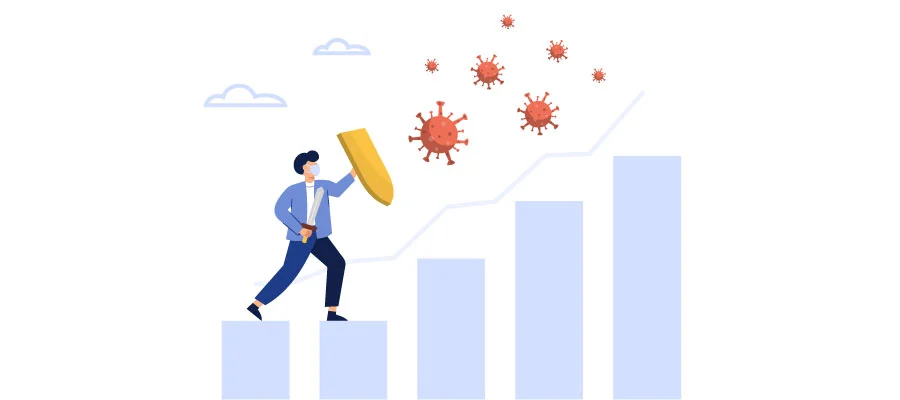What impact of covid-19 on black fridays?

After a difficult sales period, retailers and e-commerce are concerned : will the pandemic have a (negative) impact on sales? Covid-19 continues to have a profound impact on consumer buying behaviour. It turns out that Black Friday is much more complicated than in recent years, especially for retail traders.
Will consumers abandon stores during Black Friday ?
Although various means are installed in stores, hydroalcoholic solutions are used, that staff and customers are required to wear masks and that payment is made via cards, preferred banking systems, both consumers and merchants are still concerned about this pandemic. Most people think it is going to last and do not plan to go to the stores despite health and safety measures to take advantage of the great opportunities of Black Friday.
Since the entry into force of the new restrictions in England on November 5, 2020, all non-essential retailers like clothing stores and household items had to close their stores to the public, although they are still able to offer the service Click & Collect and the delivery. Even for those who can open, strict restrictions will have to be put in place to reduce the physical contact between the clients and the staff, and to comply with government guidelines. This means UK retailers will have to massively adapt their strategies compared to 2019, which will lead to a number of challenges. Encouragingly, the latest National Statistics Office data, show that retail sales have regained their pre pandemic level in August, despite the reduction in the number of people frequenting shopping streets, which could be a sign of a recovery in consumer confidence. During the last years, November and December were the most important months for retail e-commerce, however, the pandemic has resulted in a significant increase in sales– June 2020 was 15% higher than December 2019 and with a Wells Fargo survey indicating that 70% of consumers do not plan to return to stores this year, it could mean that online sales are destined to increase even more as we are moving toward e-commerce traditional peak.
What Impact on Sales Shops?
During the confinement period, we have witnessed major changes in consumer buying behaviour. This period was conducive to the “short circuit”, self-delivery, online shopping and wholesale purchases of numerous articles, mainly raw materials. A buying orientation on e-commerce had therefore been observed. In July 2020, everyone began to doubt the impact of the pandemic on purchasing behaviour during summer and holidays.
For Black Friday, just like buying Christmas gifts and other great shopping occasions, it is certain that most physical purchases will turn into online shopping.
Indeed, according to various surveys, only 4% of respondents plan to shop in-store while 28% plan to make purchases via the internet.
During confinement, the 2020 Black Friday will only be broadcast online and all the shops will be closed with the exception of essential items. In order to regulate the market, faced with the surge in Amazon sales, the US government has asked the retail giant to suspend its campaign activities before the Black Friday. The decision followed a wave of protests from small traders. Faced with this movement, the government therefore tried to play the role of moderator in an impossible competition between online shops and physical stores.
Black Friday consumers were mixed. Some of them (however small they may be) planned to shop in physical stores. Although the majority believe that the health measures that they have taken are sufficient for shopping in store during the Black Friday, but would like to promote online shopping because of this situation. But to do this, you have to start immediately! Merchants must organize themselves and ensure that their websites, their applications and all their digital infrastructure (social media, online advertisements, e-mailing) are up to the task.
